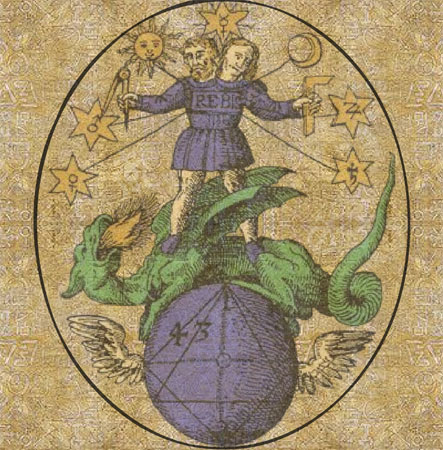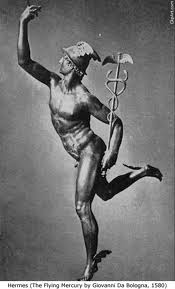
noun
b : gripe’s egg
(The). A preservative against poison, and a cure for the plague; a panacea. The shell of a new egg being pricked, the white is blown out, and the place filed with saffron or a yolk of an egg mixed with saffron.

b : gripe’s egg
(The). A preservative against poison, and a cure for the plague; a panacea. The shell of a new egg being pricked, the white is blown out, and the place filed with saffron or a yolk of an egg mixed with saffron.
The elemental system used in Medieval alchemy was developed by the Arabic alchemist Jābir ibn Hayyān and others. His original system consisted of the four classical elements found in the ancient Greek traditions (air, earth, fire and water), in addition to two philosophical elements: sulphur, ‘the stone which burns’, which characterized the principle of combustibility, and mercury, which contained the idealized principle of metallic properties.
 When today we speak of something being hermetically sealed, we use the name of Hermes Trismegistos, who in a special process cemented and rendered airtight by sealing with clay the Philosopher’s Egg, the vessel in which the transformation of gold was said to take place.
When today we speak of something being hermetically sealed, we use the name of Hermes Trismegistos, who in a special process cemented and rendered airtight by sealing with clay the Philosopher’s Egg, the vessel in which the transformation of gold was said to take place.
“The Three Hermeses … these three were in later ages confounded and fused into one, known as Hermes Trismegistus.”
“… there is a connection between a theoretical mythic archtype of Hermes and the number three -*Sladek 1988.”
“… the Trismegistus was so called because he described the creator’s three essential characteristics: existence, wisdom and life.”
As to Hermes, the Legend is not altogether without some histoical support ahhough the story is in the Legend mythical, but of that character which pertains to the historical myth.
He was reputed to be the son of Taut or Thoth, whom the Egyptians deified, and placed his image beside those of Osiris and Isis. To him they attributed the invention of letters, as well as of all the sciences, and they esteemed him as the founder of their religious rites.